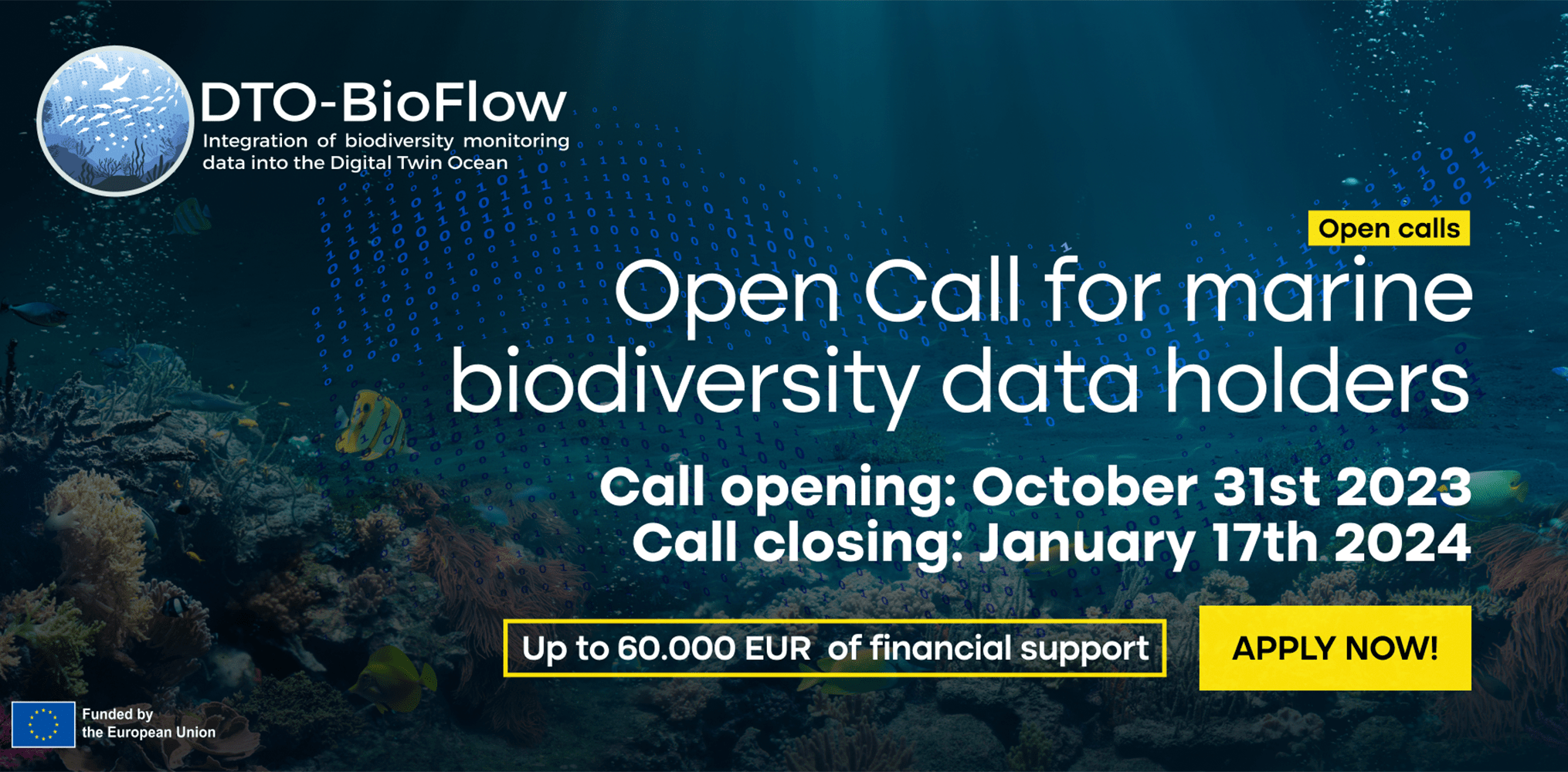Building the digital replica of our seas: an open call to activate sleeping biodiversity data
Home | DTO-BioFlow | Building the digital replica of our seas: an open call to activate sleeping biodiversity data

The Horizon Europe DTO-BioFlow project has launched an Open Call offering up to 60,000€ for institutions that manage marine biodiversity data, to invite them to contribute to the European Digital Twin of the Ocean (EU DTO) by making these data available to the public domain through EMODnet Biology, the portal that provides open and free access to interoperable data and data products on temporal and spatial distribution of marine species (angiosperms, benthos, birds, fish, macroalgae, mammals, reptiles, phyto- and zooplankton) from European regional seas. Published officially on Tuesday, October 31st, this single-stage call is open to a wide range of marine biodiversity data holders, including European networks, citizen science organisations, research institutes, universities, and non-governmental organisations (NGOs) until January 17th at 17:00 CET.
The primary goal of the call is to establish workflows and procedures that promote and facilitate the sharing of critical missing marine biodiversity data, and ultimately to facilitate sustained and long-term ingestion of previously inaccessible data into the European Digital Twin of the Ocean (EU DTO).
Marine habitats present specific and one-of-a-kind challenges when it comes to observing, mapping, and monitoring biodiversity. A myriad of actors (researchers, public bodies, blue economy operators, NGOs and citizen science groups) are collecting marine biodiversity data for various purposes and using a diverse set of collection methods. In spite of the fact that significant advancement has been made in Europe to collect, harmonise, and make available data on marine biodiversity, a large portion of data remains unavailable or inaccessible, which limits its societal value and weakens the capacities of digital twins to simulate and study “what if” scenarios enabling effective conservation, management and policy development. This type of data is referred to as “sleeping data.”
To activate these sleeping data, third parties can access a maximum funding amount of 60,000€ through this call to establish a sustained data flow to the EU DTO, by performing activities which include developing data flow pipelines, ensuring the data is formatted, standardized, and quality-controlled conforming to the relevant international standards and ensuring the data complies to Open Access.
The evaluation process is scheduled to occur from January 18th to February 8th, 2024. Eligible proposals will be selected based on multiple criteria, including their relevance, potential impact, ability to sustain data flow and automate processes, uniqueness, and overall proposal quality.
Applicants should submit their application through the Open Call webform here.